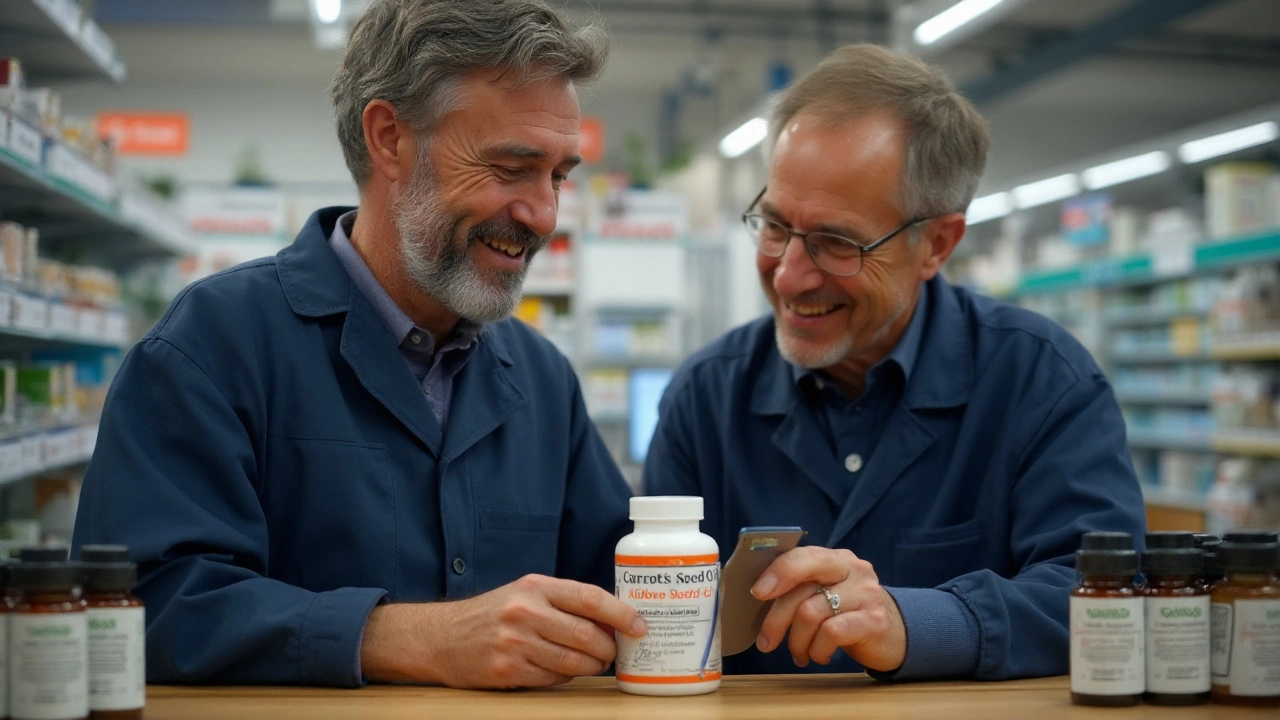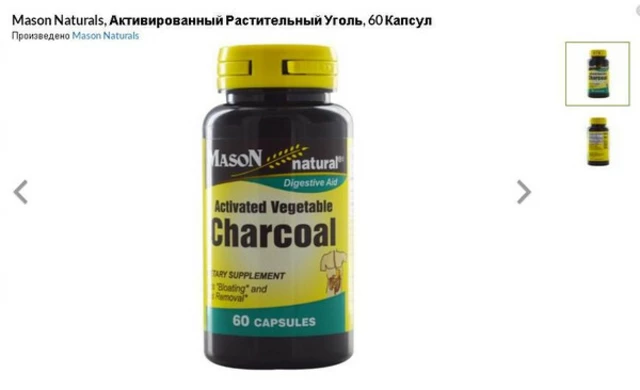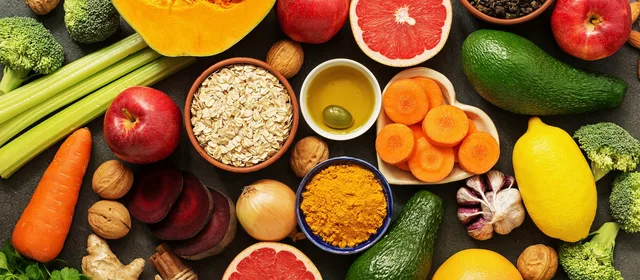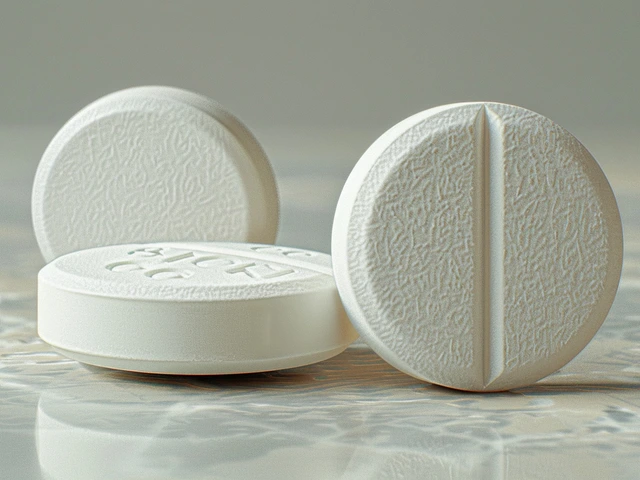You clicked because you want straight talk: what wild carrot supplements can actually do for your health, and what’s just folklore. Here’s the short version-there are promising benefits around digestion, urinary comfort, and antioxidant support, but human research is limited. Expect gentle support, not miracles. And if you’re pregnant or trying to conceive, steer clear.
- Wild carrot (Daucus carota; Queen Anne’s lace) is not the same as supermarket carrots. Supplements usually use the seed or aerial parts.
- Potential benefits: mild diuretic action, digestive comfort, and antioxidant support. Human trials are sparse.
- Safety first: avoid if pregnant, trying to conceive, or allergic to the carrot/celery/mugwort family. Don’t ingest essential oils.
- Choose products with clear Latin names, third-party testing, and (in Canada) an NPN on the label.
- Typical label doses: seed powder 300-600 mg 1-2x/day; tincture 1-3 mL up to 3x/day. Start low and reassess in 2-4 weeks.
What wild carrot is-and why people take it
Wild carrot (Daucus carota subsp. carota), better known as Queen Anne’s lace, is the lean, aromatic ancestor of the orange carrot. Supplements on the market usually contain dried seed powder, aerial parts, or extracts; some cosmetics use carrot seed oil on skin, but that’s not the same thing as a dietary supplement. If the label doesn’t spell out the Latin name and the plant part (for example, “Daucus carota seed”), that’s a red flag.
Why are people interested? Historically, wild carrot seed has been used as a gentle diuretic and digestive carminative. Modern lab and animal research backs up pieces of this: the seeds and leaves contain volatile oils (carotol is often dominant), flavonoids (like quercetin and luteolin), and phenolic acids-compounds known for antioxidant and anti-inflammatory activity. That said, we don’t have robust human clinical trials confirming big, specific outcomes. Think of wild carrot as a light-touch botanical you might try for urinary comfort, bloat, or general antioxidant support, not as a cure for an infection or a chronic condition.
What it’s not: a stand-in for your regular carrot intake or a vitamin A supplement. The beta-carotene that orange carrots are famous for isn’t the main event here. Also, wild carrot isn’t parsley or celery seed, even though they’re cousins in the Apiaceae family.
Evidence snapshot: benefits you can reasonably expect
Let’s keep it honest and useful. Here’s where the science and traditional use overlap-and where they don’t.
- Mild urinary support: Traditional herbal texts describe wild carrot seed as a gentle diuretic. Contemporary animal studies have observed increased urine flow with seed extracts, consistent with that traditional label. Human data are limited, so expect subtlety, not a dramatic effect. It’s not a UTI treatment; for infection signs (burning, fever, blood in urine), see a clinician.
- Digestive comfort: The seed’s aromatic oils act like other carminatives (think fennel or dill), helping with gas and post-meal bloat. The effect tends to be felt within hours to days in sensitive people, again on the “gentle” side. This is consistent with both historical use and lab evidence showing smooth-muscle modulation in the gut for similar oils.
- Antioxidant and inflammatory tone: Extracts of Daucus carota have shown free-radical scavenging and cyclooxygenase-modulating activity in cell models. That’s suggestive of broad, low-grade support for inflammation balance. It doesn’t translate directly into a disease claim, but it’s relevant for general wellness regimens.
- Metabolic markers (early data): Some animal studies hint at favorable glucose and lipid changes with extracts. We don’t yet have solid human trials, so file this under “interesting but not proven.” Don’t replace prescribed meds with wild carrot; if you use both, monitor with your clinician.
- Fertility and menstrual effects: Historically, the seed has been described as an emmenagogue. Animal and in vitro data suggest possible anti-implantation activity at certain doses. That’s a safety flag: avoid if you are pregnant, might be pregnant, or trying to conceive.
Quality of evidence: Most findings come from phytochemical analyses, lab studies, and animal models. Authoritative references like the Natural Medicines database currently rate the evidence for specific conditions as “insufficient reliable evidence.” Health regulators such as Health Canada and major pharmacopeias emphasize product identity, purity, and safety over disease claims for this herb.
Good practice: If you trial wild carrot, define a goal you can measure (less bloat after meals; fewer nighttime trips to the bathroom) and give it 2-4 weeks. If nothing changes, move on.

How to choose and use wild carrot safely
Picking a good product matters more than most people think. Here’s how to stack the deck in your favor.
- Read the Latin: Look for “Daucus carota” plus the plant part (seed, aerial parts). “Queen Anne’s lace” alone isn’t precise enough.
- Canada check (2025): In Canada, licensed herbal products carry an NPN (Natural Product Number) on the label-your quick proof the product is authorized for sale and has met identity and safety requirements.
- Third-party testing: Prefer brands with independent verification (USP, NSF, or ConsumerLab). These programs test for identity, potency, and contaminants like heavy metals and pesticides.
- Avoid ingesting essential oils: Carrot seed essential oil is for topical aromatherapy in diluted form, not for swallowing. Ingested essential oils can irritate mucosa, stress the liver, and are unsafe in pregnancy.
- Clean labels: Short ingredient lists, no proprietary blends for single-herb products. If there’s an extract, the ratio should be specified (for example, 5:1) and the solvent indicated.
Common forms you’ll see:
- Seed powder capsules: often 300-600 mg per cap.
- Tincture (alcohol extract): common label directions run 1-3 mL up to three times daily.
- Herbal tea: 1-2 teaspoons lightly crushed seed steeped 10-15 minutes, up to twice daily.
Dosing rules of thumb (not medical advice):
- Start low (for example, 300 mg seed powder once daily or 1 mL tincture) with food for 3-4 days.
- Hydrate: if you notice increased urination, drink extra water to avoid lightheadedness.
- Time it: for urinary comfort, try morning and early afternoon; avoid late evening if nighttime bathroom trips bother you.
- Assess at 2 weeks: if you notice clear benefit and no side effects, you can keep the lowest effective dose. If nothing changes by 4 weeks, consider stopping.
Stacking ideas (simple, safe-first approach):
- Digestive comfort: Pair with ginger or fennel after meals. These are well-tolerated for most people.
- Urinary comfort: Some people combine with D-mannose or cranberry for short-term support. If you develop UTI signs (pain, fever, cloudy urine), seek care promptly.
- Antioxidant coverage: Focus on diet first-berries, leafy greens, olive oil-then consider a broad-spectrum polyphenol blend if needed.
What to expect: If it’s going to help with gas or bloat, you may notice within days. For urinary comfort, give it one to two weeks. Benefits tend to be modest and additive to good habits (hydration, fiber, movement).
Safety first: who should avoid it, interactions, and pitfalls
This is the section to read twice. Most healthy adults tolerate wild carrot well at common label doses, but there are clear exceptions.
- Pregnancy and trying to conceive: Avoid. Historical use and animal data suggest emmenagogue/anti-implantation activity. If your cycle is irregular or you could be pregnant, skip it.
- Breastfeeding: Safety data are limited. Avoid unless your clinician is comfortable with it and there’s a clear rationale.
- Allergy: If you react to carrot, celery, parsley, dill, coriander, or mugwort (pollen-food syndrome), you could react to wild carrot. Stop at the first sign of itching, swelling, hives, wheeze, or mouth-tingling.
- Photosensitivity: Plants in this family can contain furanocoumarins that make skin more sun-sensitive. It’s uncommon at supplement doses, but if you develop a sun rash, discontinue and protect from UV.
- Kidney issues: Because of the diuretic effect, use caution if you have kidney disease or are on fluid-restricted plans. Talk to your nephrologist first.
- Medication interactions:
- Diuretics: additive effects can lead to dehydration or electrolyte imbalance.
- Lithium: changes in fluid balance can alter lithium levels. Do not experiment without prescriber oversight.
- Antihypertensives: mild additive BP-lowering is possible; monitor for dizziness.
- Hypoglycemics: animal data suggest possible glucose effects; if you’re on insulin or sulfonylureas, monitor closely.
- Anticoagulants/antiplatelets: data are sparse, but new botanicals should be cleared with your anticoagulation clinic.
- Essential oil ingestion: Don’t. Carrot seed essential oil is potent, can irritate the gut, stress the liver, and is contraindicated in pregnancy.
- Foragers beware: If you harvest plants yourself, know that deadly lookalikes (poison hemlock, water hemlock) exist. Supplements should come from vetted sources with proper identity testing.
Quality pitfalls to avoid:
- Vague labels (“carrot extract” with no Latin name or plant part).
- Proprietary blends that hide the actual dose per herb.
- Products marketing carrot seed essential oil as an ingestible supplement.
- No batch lot number, no expiry date, no third-party testing-skip those.
Credible references for your own digging: Natural Medicines (2025 edition) provides an evidence summary for wild carrot; the USP Dietary Supplements Compendium and NSF/ANSI 173 outline testing frameworks; Health Canada’s NNHPD explains the NPN system and identity requirements. These aren’t endorsements-just solid places to check facts.

Quick tools: checklists, comparisons, FAQs, and next steps
Use these to make faster, safer choices and to set realistic expectations.
Buyer’s checklist (2-minute scan in the aisle):
- Latin name present: Daucus carota (plant part specified).
- In Canada: NPN number printed on label.
- Third-party tested seal: USP, NSF, or ConsumerLab.
- Clear dose per serving; no proprietary blend.
- Directions match your intent (seed powder capsule or tincture-not essential oil).
- Allergen statement reviewed if you react to Apiaceae plants.
Is wild carrot right for me? A quick decision guide:
- If you want a gentle diuretic feel or post-meal bloat support-and you’re not pregnant-consider a 2-4 week trial.
- If you need to treat an infection, regulate blood sugar, or manage blood pressure, talk to your clinician. This herb isn’t a substitute for medical care.
- If you’re very sensitive to herbs, start with tea before capsules-it’s easier to titrate.
Wild carrot vs the usual suspects (what to pick when):
- Wild carrot vs cultivated carrot/beta-carotene: If your goal is eye health or vitamin A status, eat carrots or use beta-carotene. For gentle urinary/digestive support, wild carrot seed makes more sense.
- Wild carrot vs celery seed: Celery seed is commonly used for fluid balance and joint comfort. If you’re salt-sensitive or on antihypertensives, celery seed can interact more with meds; wild carrot is typically gentler but still requires caution.
- Wild carrot vs parsley seed: Parsley seed is a stronger diuretic and higher risk in pregnancy. If you want the mildest option, wild carrot usually wins on tolerability-still not for pregnancy.
Mini-FAQ
- Is this the same as carrot seed essential oil? No. Essential oil is aromatic and topical when diluted; don’t ingest it. Supplements use seed powder or extracts.
- How long until I feel something? For bloat, sometimes within days; for urinary comfort, one to two weeks. If there’s no change by four weeks, it’s probably not your herb.
- Can it help a UTI? No. It isn’t an antibiotic. If you suspect a UTI, get tested and treated. You can discuss adjuncts with your clinician.
- Is it safe for men? Yes, with the same caveats: avoid if trying to conceive, review meds, and watch for allergies.
- Is it banned in sports? There’s no listing for wild carrot on major anti-doping lists. Still, athletes should use third-party tested products.
- Can I take it daily? For most healthy adults, a short-term daily trial (2-8 weeks) is reasonable. Reassess periodically. Long-term continuous use hasn’t been well studied.
Troubleshooting
- I feel lightheaded: You may be slightly dehydrated from increased urination. Cut the dose in half, drink more water, and consider taking it earlier in the day. If it persists, stop.
- I got a rash after sun exposure: Stop immediately and protect from UV. If severe, seek care.
- No effect at all after four weeks: Save your money. Consider other approaches: diet tweaks (fiber timing), ginger/fennel for digestion, or speak with a dietitian.
- My meds feel stronger: If you’re on diuretics, BP meds, lithium, or blood sugar meds, contact your prescriber to review.
Simple plan to try it safely
- Pick a product that clearly states “Daucus carota seed,” with third-party testing (and NPN if you’re in Canada).
- Define your goal (“less bloat after dinner” or “fewer daytime bathroom trips”).
- Start with the lowest label dose for 3-4 days, then adjust to comfort.
- Log changes for two weeks. If it’s helping and you feel good, continue to four weeks.
- At four weeks, decide: keep, cycle, or stop. No change? Move on.
Bottom line: wild carrot supplements offer gentle support for digestion, urinary comfort, and antioxidant tone, with a safety profile that’s reasonable for many-but not for pregnancy, not for essential oil ingestion, and not as a stand-in for medical care. Pick a clean, verified product, start low, and let your results guide you.










Steven Waller September 5, 2025
When you’re looking at wild carrot supplements, it helps to keep perspective on what the herb actually offers. The plant provides mild diuretic and digestive support, but the evidence stops short of dramatic cures. Think of it as a gentle adjunct to a balanced diet rather than a magic bullet. Starting with a low dose, monitoring your response, and stopping if you notice any side effects is a sensible approach. In short, the herb can be a modest ally for comfort, provided you stay realistic about its limits.
Puspendra Dubey September 5, 2025
Ah, the ancient whispers of Queen Anne’s lace-truly a dance of nature’s secrets 😉. One could argue that the modern “supplement” scene is just a glossy veil over age‑old wisdom, yet the science still wanders in the mist. Sure, the studies are scarce, but the lore tells us it can calm the belly and coax the kidneys to work a tad softer. If you’re willing to experiment, start low, feel the subtle shift, and maybe you’ll discover a quiet ally hidden in the garden of remedies. The journey is as important as the destination, isn’t it?
Shaquel Jackson September 5, 2025
Seems like the article tried hard to be balanced, but it ends up sounding like a marketing brochure 🙄. The “promising benefits” are mostly theoretical, and the safety warnings feel tacked on at the end. If you’re hoping for miracles, you’ll be disappointed. At best you might get a slight reduction in bloating, which is hardly groundbreaking. Just keep your expectations in check.
Tom Bon September 5, 2025
I appreciate the thoroughness of the guide and the emphasis on product verification, such as the presence of a Latin name and third‑party testing. The recommendation to start with a low dose and reassess after two to four weeks aligns with best practices in phytotherapy. Moreover, the clear safety cautions for pregnant individuals are essential. Overall, the article presents a measured framework for responsible use of wild carrot supplements.
Clara Walker September 5, 2025
It’s no coincidence that the supplement industry pushes wild carrot under the guise of “gentle support” while downplaying the lack of human trials. Behind the polished labels lies a network of manufacturers eager to profit from vague health claims, relying on the inertia of regulatory gaps. Consumers should remain skeptical of products that boast “natural” benefits without rigorous verification, especially when the same entities lobby for looser oversight. Remember, a well‑crafted NPN does not guarantee efficacy-it merely signals compliance with minimal standards set by agencies that often bow to industry pressure.
Jana Winter September 5, 2025
The article contains several grammatical oversights that merit correction. For instance, the phrase “it’s not a cure for an infection” should read “it is not a cure for an infection” to maintain formal tone. Additionally, “the seed’s aromatic oils act like other carminatives” needs a comma after “seed’s” for clarity. Consistent use of the serial Oxford comma in the listed benefits would improve readability. Precise language is crucial when conveying health information, as ambiguity can lead to misunderstanding.
Linda Lavender September 6, 2025
One must first acknowledge the profound lineage of Daucus carota subsp. carota, an ancestor that has endured millennia of climatic vicissitudes, only to emerge in contemporary commerce as a “supplement” cloaked in the elegant veneer of botanical chic. The allure of such an herb lies not merely in its aromatic seed oil, but in the philosophical temptation to transcend the mundane boundaries of modern pharmacology with a whisper of ancient wisdom. When we examine the phytochemical tableau-carotol, quercetin, luteolin-we encounter a complex symphony of molecules that, in isolation, might appear modest, yet together orchestrate a subtle modulation of physiological homeostasis. In the same vein, the claims of mild diuretic action and digestive comfort are not hyperbolic fabrications, but rather reflections of a nuanced interplay between volatile constituents and smooth‑muscle receptors within the gastrointestinal tract. Moreover, the antioxidant profile, while not rivaling the potency of synthetic agents, contributes an ancillary layer of cellular protection that aligns with a holistic approach to health. It is, however, imperative to temper this admiration with a sober appraisal of the evidentiary gap; the paucity of robust human trials renders any proclamation of definitive therapeutic outcomes speculative at best. Consequently, the prudent consumer ought to adopt a measured protocol-initiate therapy with a sub‑therapeutic dose, meticulously log subjective responses, and remain vigilant for any untoward effects. The guidance to eschew the herb during pregnancy is buttressed by historical accounts of emmenagogue activity, a reminder that even nature’s gentlest offerings can harbor potent bioactivity. From a regulatory perspective, the emergence of the Canadian NPN system exemplifies an incremental stride toward accountability, yet it remains insufficient to guarantee purity beyond the absence of overt contaminants. The labyrinthine landscape of third‑party testing, when navigated with discernment, can unmask product inconsistencies that would otherwise evade the untrained eye. In practice, pairing wild carrot seed with complementary botanicals such as fennel or ginger may potentiate its carminative efficacy, an insight drawn from both ethnobotanical tradition and contemporary clinical observation. Ultimately, the decision to incorporate wild carrot into one’s regimen should be predicated upon an individualized risk‑benefit calculus, informed by personal health status, concurrent medications, and the overarching therapeutic goals. In summation, while the herb offers a tantalizing promise of gentle support, it is not a panacea; it is a modest adjunct that, when employed judiciously, may enrich the tapestry of one’s wellness strategy.
Jay Ram September 6, 2025
Give it a try and see if it helps your gut.
Elizabeth Nicole September 6, 2025
The concept of a low‑dose, plant‑based supplement fits nicely into a sustainable wellness routine. If you’re curious about whether wild carrot can ease afternoon bloating, start with the smallest capsule and monitor your comfort level for a few days. Many people find that pairing it with a cup of ginger tea amplifies the digestive benefits without any extra hassle. Remember, consistency is key-steady, modest use often yields the most noticeable results. Stay open to the subtle changes, and you might discover a newfound steadiness in your daily rhythm.
Dany Devos September 6, 2025
The article, while comprehensive, suffers from an overreliance on anecdotal references and insufficient citation of peer‑reviewed studies. Its attempt to present a balanced view is undermined by the inclusion of speculative “early data” without clear demarcation of the evidentiary hierarchy. Readers would benefit from a more rigorous distinction between in‑vitro findings and clinically relevant outcomes. Additionally, the safety section could be expanded to address potential interactions with common antihypertensive agents, which are merely mentioned in passing. A stricter editorial standard would elevate the piece from a consumer overview to a reliable source for health professionals.
Sam Matache September 6, 2025
Look, the wild carrot hype is nothing more than a clever marketing ploy, dressed up in scientific jargon to lure unsuspecting consumers. The so‑called “mild diuretic” effect is barely measurable, and the antioxidant claims are ripped straight from generic herbal pamphlets. Manufacturers exploit the regulatory gray area, slapping NPN numbers on products that haven’t been subjected to rigorous clinical validation. It’s a classic case of profit over patient safety, and the average shopper is left to decipher vague dosage instructions while the industry cashes in.
Hardy D6000 September 6, 2025
While the skepticism toward marketing practices is warranted, the outright dismissal of all wild carrot supplements ignores the nuanced pharmacology documented in several reputable ethnobotanical surveys. Controlled animal studies have consistently demonstrated modest diuretic activity, and the presence of flavonoids such as quercetin provides a plausible mechanistic basis for antioxidant effects. Therefore, a blanket condemnation fails to acknowledge the potential incremental benefits that a well‑characterized, third‑party‑tested product can offer to individuals seeking mild adjunctive support.
Amelia Liani September 6, 2025
I hear the frustration that arises when health information is muddled by careless language; clear communication is essential for safe usage. Your attention to grammatical precision underscores a deeper concern for the clarity of guidance that patients rely upon. It’s vital that authors respect both the scientific rigor and the readability of their work, ensuring that readers can trust the content without grappling with avoidable errors. Thank you for highlighting this important dimension.